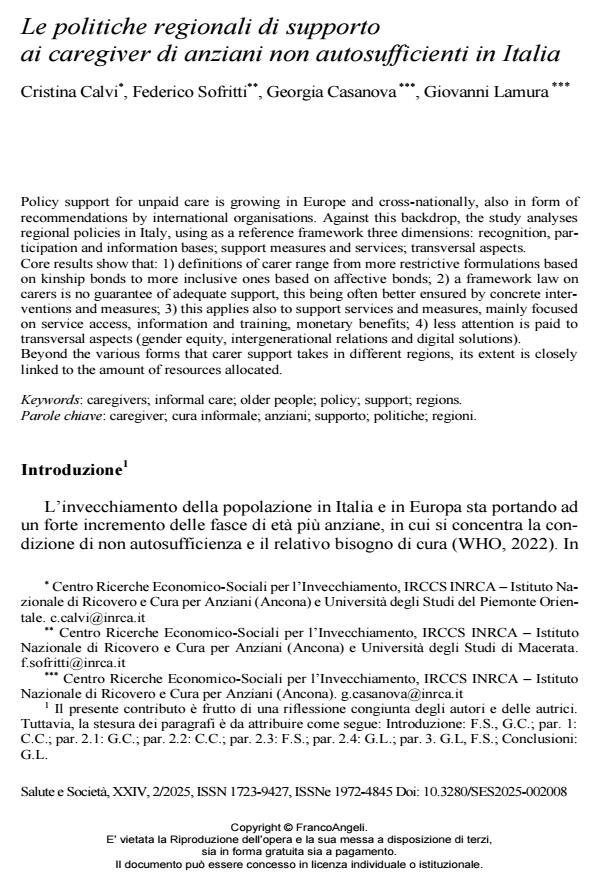Le politiche regionali di supporto ai caregiver di anziani non autosufficienti in Italia
Journal title SALUTE E SOCIETÀ
Author/s Cristina Calvi, Federico Sofritti, Georgia Casanova, Giovanni Lamura
Publishing Year 2025 Issue 2025/2
Language Italian Pages 15 P. 90-104 File size 425 KB
DOI 10.3280/SES2025-002008
DOI is like a bar code for intellectual property: to have more infomation
click here
Below, you can see the article first page
If you want to buy this article in PDF format, you can do it, following the instructions to buy download credits

FrancoAngeli is member of Publishers International Linking Association, Inc (PILA), a not-for-profit association which run the CrossRef service enabling links to and from online scholarly content.
Policy support for unpaid care is growing in Europe and cross-nationally, also in form of recommendations by international organisations. Against this backdrop, the study analyses regional policies in Italy, using as a reference framework three dimensions: recognition, participation and information bases; support measures and services; transversal aspects. Core results show that: 1) definitions of carer range from more restrictive formulations based on kinship bonds to more inclusive ones based on affective bonds; 2) a framework law on carers is no guarantee of adequate support, this being often better ensured by concrete interventions and measures; 3) this applies also to support services and measures, mainly focused on service access, information and training, monetary benefits; 4) less attention is paid to transversal aspects (gender equity, intergenerational relations and digital solutions). Beyond the various forms that carer support takes in different regions, its extent is closely linked to the amount of resources allocated.
Keywords: caregivers; informal care; older people; policy; support; regions.
Cristina Calvi, Federico Sofritti, Georgia Casanova, Giovanni Lamura, Le politiche regionali di supporto ai caregiver di anziani non autosufficienti in Italia in "SALUTE E SOCIETÀ" 2/2025, pp 90-104, DOI: 10.3280/SES2025-002008